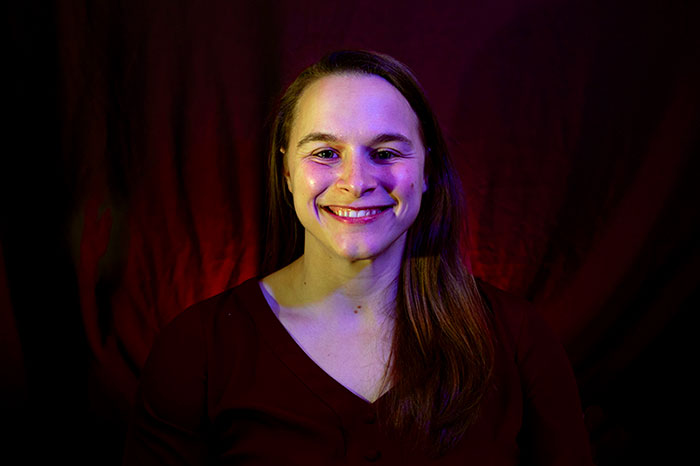Women's History Month: Maryland native builds legacy as agent of positive change

Women have a rich history in the U.S. military, since before the nation's founding. During Women's History Month, we are highlighting women across the U.S. Army Medical Materiel Development Activity (USAMMDA) and the contributions they make each day to the Army's medical development and sustainment missions.
Much of military medical development happens behind the scenes. While trade shows, medical symposiums and industry days get attention, there are dozens of people working to manage the minutiae of product development and help advance innovative ideas and concepts. The process can take years to transform an idea into concrete reality. It takes a systematic mind for developers to move products from one step to the next, an artist's eye to refine the details that matter most during development, and a leader's strength to nurture programs to fruition despite the challenges that are inherent in any creative enterprise.
Emily Krohn has all the traits of a successful medical developer in spades, with a drive befitting her youth and a determination complementing her professional approach as a woman and as a leader.
Born and raised in Calvert County, Maryland, Krohn is not the first woman to walk in her shoes as an Army medical developer, nor will she be the last. She is, however, part of the legacy of women leaders who have help move the yardstick of equality in the U.S. Army, and she has learned to not take a challenge sitting down.
"My roles push me outside my comfort zone and force me to constantly learn and adapt," said Krohn, who currently serves as an assistant product manager with USAMMDA's Warfighter Readiness, Performance, and Brain Health team. "I appreciate that every day is an opportunity to improve my professional skills while working to advance Warfighters' medical capabilities."
Krohn helps manage the WRPBH pre-hospital hypothermia prevention program and the medical equipment set for the Prolonged Care Augmentation Detachment from USAMMDA's home base at Fort Detrick, Maryland. Not that you will always find her there – Krohn is a hands-on developer, crisscrossing the country to interface with industry partners and prospective military end-users to refine her team's approach to various products. Her educational and professional backgrounds suit her current duties, and her temperament matches the methodic, streamlined, and systematic process of military medical development.
"I wanted to work in the medical device realm since my degree is in bioengineering," from the University of Maryland, said Krohn, who previously assisted in the development of USAMMDA's Health Readiness and Performance System program. "I started my career working for a private medical device company and then transitioned to Army medicine because I felt it would make a larger impact."
Krohn, like many young women in a professional world traditionally filled with men, has a different perspective relating to gender roles in the workplace. Unlike some, Krohn uses the challenges to her advantage, taking lessons she has learned and building her credibility as a go-to expert for innovation who transcends societal notions of what women can and cannot do, and how their voices can shape an organization's approach to mission accomplishment.
"I am very aware of how my actions are perceived as a woman in the workplace, which impacts how I choose to perform my job. I have learned that women cannot talk, act, and present themselves in the same way as the average man and expect to be treated identically," said Krohn. "My experiences have taught me the need to work hard and speak up when actions are unacceptable, even if it is an unpopular opinion or decision."
Her six years in medical development have given Krohn a perspective that is uniquely her own, built on common ground where everyone, regardless of gender or professional station, works to benefit America's Warfighters, with diversity an inherent strength and each team member contributing to the marketplace of ideas.
"There are many ways to be a successful leader, and it's important to have these different perspectives, voices, and experiences at the table," said Krohn. "It makes the military stronger, more adaptable, and welcoming to more people. Diversity in the workplace is a sign of a healthy culture."













